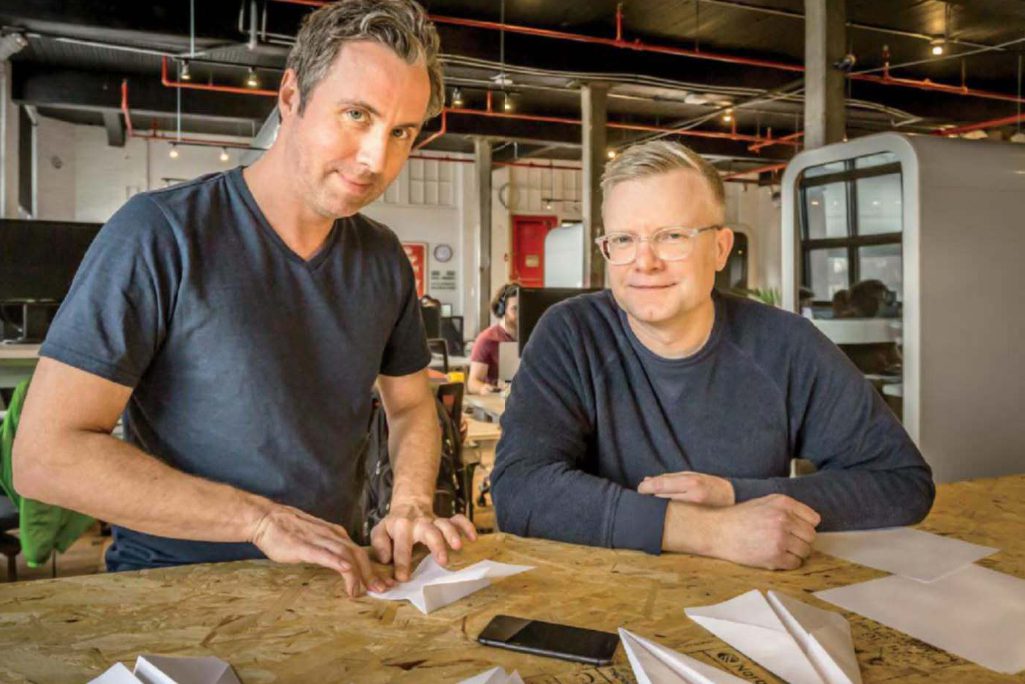Skift Take
Hopper has closed an investment of about $70 million, according to a report. Investor faith in travel appears to endure.

Travel Startup Funding This Week
Each week we round up travel startups that have recently received or announced funding. Please email Travel Tech Reporter Justin Dawes at [email protected] if you have funding news.
This week, travel startups announced at least $4 million in confirmed funding.
In related startup news, Thayer Ventures, one of the rare firms to focus primarily on travel company equity investments, has closed an $80 million fund to invest in young travel and transportation companies despite the coronavirus pandemic.
>>Hopper, the online travel agency that has emphasized pricing predictions, closed a $70 million round of funding, according to The Logic.
Westcap led the latest round in the Montreal-based company, The Logic reported. Other investors included Montreal-based Inovia, Business Development Bank of Canada (BDC), Omers (the investing arm of the Ontario Municipal Employees Retirement System), Investissement Québec, and the Caisse de dépôt et placement du Québec.
The startup declined to comment on the report. Before this funding, Hopper had disclosed raising about $160 million ($235 million Canadian) since its founding in 2007.
Most recently Hopper raised a Series D round of funding of $100 million in 2018. Since then, the company quadrupled its engineering team and grew its finance and operations teams from 2 employees to 34. But the company had to lay off an undisclosed number of people a month ago due to the crisis.
>>Zeus Living, which provides temporary furnished homes for business employees, raised about $15 million in equity and debt from existing investors CEAS Investments, Initialized Capital Management, and Soros Fund Management, according to Bloomberg News. Skift asked the startup about this, and a spokesperson said it had no comment. Zeus announced layoffs on Tuesday.
>>Interprefy, a provider of remote interpreting technology and services for conferences and meetings, has received a loan guarantee of about $1.85 million (1.8 million Swiss francs) from Swiss-based Technologiefonds.
The London-based startup Interprefy lets in-person and virtual event and meeting participants listen to the language of their choice through their smart devices thanks to remote interpreters. The total Interprefy had raised before this investment was around $6.3 million.
“In the last few months we have seen most of our onsite events vanish, but at the same time a huge demand has arisen as clients ask us to take those and other conferences completely online,” said Kim Ludvigsen, founder and CEO.
>>Handiscover, a booking site highlighting more than 35,000 properties as vetted accommodation for people with reduced mobility or special needs, has received $1.7 million (€1.6 million) grant from an arm of the European Union called the European Innovation Council (EIC).
Handiscover is in the process of closing an equity funding with the European Investment Bank participating. It had previously raised about $2.5 million (€2.3 million) from private investors.
>>Jufeng Networks, short video service provider for travel videos, has raised several hundred thousand dollars from private investors in a seed funding round.
The company, based in Guiyang, China, plans commercial production company that shoots short film, video clips, and livestreams. It will create and host short videos on popular online platforms to promote destinations, lodging providers, and travel service companies.
>>LuggageHero, a Copenhagen-based company that helps travelers find places to store their bags, has raised about $415,000 (€403,000) in a crowdfunding effort from more than 500 investors via Seedrs.
Many luggage-storage networks, including BagBnb, Bounce, Lugless, Stasher, and Vertoe have been competing in the sector although not all will survive the crisis.
Skift Cheat Sheet:
We define a startup as a company formed to test and build a repeatable and scalable business model. Few companies meet that definition. The rare ones that do often attract venture capital. Their funding rounds come in waves.
Seed capital is money used to start a business, often led by angel investors and friends or family.
Series A financing is typically drawn from venture capitalists. The round aims to help a startup’s founders make sure that their product is something that customers truly want to buy.
Series B financing is mainly about venture capitalist firms helping a company grow faster. These fundraising rounds can assist in recruiting skilled workers and developing cost-effective marketing.
Series C financing is ordinarily about helping a company expand, such as through acquisitions. In addition to VCs, hedge funds, investment banks, and private equity firms often participate.
Series D, E and beyond These mainly mature businesses and the funding round may help a company prepare to go public or be acquired. A variety of types of private investors might participate.
The Daily Newsletter
Our daily coverage of the global travel industry. Written by editors and analysts from across Skift’s brands.
Have a confidential tip for Skift? Get in touch
Tags: funding, startups, vcroundup
Photo credit: Hopper co-founders Frederic Lalonde, left, and Joost Ouwerkerk. Hopper
